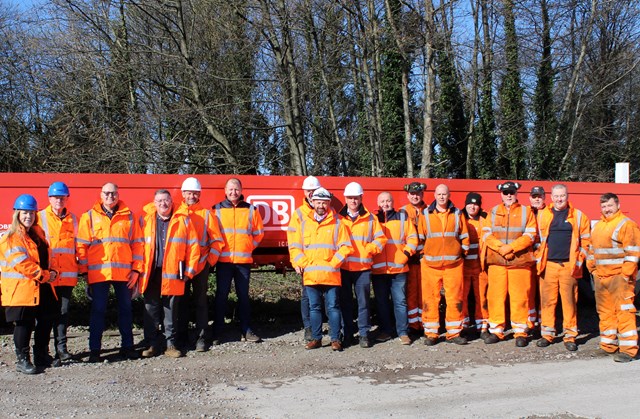Boost for rail freight as industry joins forces to improve safety and performance

In a first for rail freight in Britain, Network Rail has joined with key industry partners to tackle delays and safety risks in a boost for the country’s thriving freight sector.
Data analysis by Network Rail, freight operators and the Rail Safety and Standards Board (RSSB) has shown that most delays on the freight network are due to wagon defects, including various brake faults, wheel faults, decoupling and door faults. If undetected, these defects have the potential to cause delays and safety risks to rail traffic.
The Condition of Freight Vehicles on the Network (CFVN) programme – funded by Network Rail’s £20m Freight Safety Improvement Portfolio (FSIP) – has developed processes for train preparation, wagon maintenance and the important role human factors play in performing safety critical tasks to reduce risk and improve performance across the network.
David Ethell, independent project manager for the National Freight Safety Group (NFSG), which oversees the CFVN programme, said:
“This is a sector wide project looking at learning and sharing good practice from across all the freight operating companies in Britain, to find where improvements can be made so we can introduce one common industry standard for the safe preparation of freight trains and vehicles.
“The maintenance of freight wagons to prescribed standards and the safe preparation of trains by qualified and competent staff are fundamental requirements of operating a safe freight railway. By resourcing the CFVN workstream the freight industry can collaborate and build better understanding of the factors impacting this risk.”
Speaking at the launch at DB Cargo’s Margam freight yard – one of the company’s busiest sites where on average around 40 freight trains arrive and depart the yard each day – Dougie Hill, from RSSB, spoke to the DB Cargo operations and engineering teams performing these safety critical duties and said:
“We need to hear your experiences. Your roles are of key importance in the safe operation of freight trains and fundamental to assisting the sector in improving and reducing derailment risk. Having such expertise on the ground every day is critical in the safe delivery of freight traffic. Sharing professional knowledge and understanding the challenges faced by the teams will be key in the development of CFVN risk mitigation action plans.
“I am delighted by how engaged, positive and motivated the ground staff and wagon fitters at Margam are in assisting us in this most important project.”
Marc Binney, head of safety for DB Cargo, said:
“This is very much a collaborative approach being taken by the freight sector. The project is incorporating all the rail freight operators where we will be looking at things collectively to find what we can do better together as an industry. When I look at the other freight operators, I see that we are all doing some train preparation and processes slightly differently so this project will look at how we can introduce a cohesive industry wide standard.”
